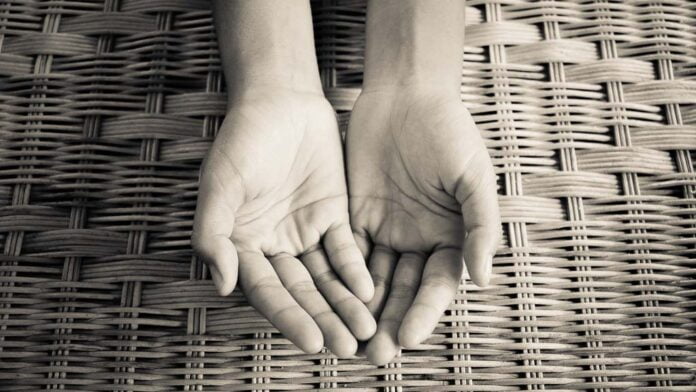In Cambodia and especially Siem Reap where the tourism industry has grown rapidly, the impact is on local communities due to culture clash, accelerated modernisation and extreme poverty. Giving money to children may seem like an easy way to help, but it isn’t as straight forward as what meets the eye.
Giving Money to Begging Children
Some of these kids have great lines to feed you; tell you they’re going to school in the afternoon (or vice verse in the morning if you see them in the afternoon), that the money goes to their education. Whilst this may be true if you were to encounter them in the countryside, chances are that if you’ll see them near the Angkor temples or Pub Street, that’s very likely not where the money will actually go.
The money might go to the family, surely that’s a good thing? Nope, this is the tough love approach. When families expect or demand their kids to go out begging or selling to bring in money, this is only a short-term solution to their financial difficulties. This type of behaviour sets the children up for an even more difficult future as the country develops and the poor get further and further behind.
Refusing to feed this system, gives the children a lot higher chance of going to school, so they’ll have an opportunity to break the cycle of poverty and gain a better future for themselves and their children in turn.
How about giving food to begging children? It seems kind enough, but be cautious. This may get the child into trouble with those higher up the chain of command. And similar to giving money, it creates a lifestyle of dependence and likely will mean the child can progress to no other way of living in the future, they will just continue to beg for food or money. Especially avoid giving sweets or soft drinks. It may seem cruel but most Cambodians can’t afford dental care. The last thing they need is more damage to their teeth!
Can I give toys, toothbrushes, school books or rice? In this case, make sure you go through some good channels. There are numerous scams relating to rice and school books, so do some research and if you’re asked on a whim, see if you can take some details or simply advise them that you will seek to help later.
Plan before you act. Many schools will have (and should have, if they don’t then again, do more research!) strict gift giving policies; they prefer your donation be pooled until there is a fair amount of gifts for all students and none are singled out or made to feel more or less special. Talk to the head of school to find out how best to help with donations. Don’t just turn up at the gate, instead phone and make an appointment.
Siem Reap’s Baby Milk Scam
Chances are if you’re around the Old Market / Pub Street area you’ll run into a woman or child carrying a baby and asking you to buy a $20 (at least) can of milk powder for the baby instead of money. This seems like an honest plea for help, but it’s actually a scam. Be very careful and firmly but politely decline.
The milk scam explained: In case you agree to buy a can of milk powder, you will be shown to a specific shop and buy it over the counter. However, once you’ve left the scene, the milk powder will be returned to the store and the money divided amongst the scammers and the store owner. Finally the milk will end up on a shelf in that same store to be sold again and again.
The real situation is, if a mother was actually unable to feed her baby, there are NGOs that will give powdered milk for free.
Giving Money to Old or Disabled People
This is where things get more complex. In Cambodia there is no welfare system, thus if an old person has no family to support them then they have no way of fending for themselves and this can be very dire. Similar to the older generation, there is no welfare system for people with disabilities. In fact, a strand of Buddhist philosophy points to that disability as a punishment for bad deeds in a previous life.
Our general advice here is to use common sense, it’s okay to give and in many cases this will bring much relief.
A Better Way to Help
There are local NGOs supporting people across all of these areas and they are a good place to go if you really want to help in a meaningful way.
Last but not least, use some common sense! You don’t need to be cold hearted and callous but it can feel like that when refusing a pleading face. Just remember, you are actually helping more by not giving money, in most cases. Apply some logic and if you feel uncomfortable, seek advice.
Have you had experience with this? Please share thoughts and recommendations for travellers with us in the comments section below.



